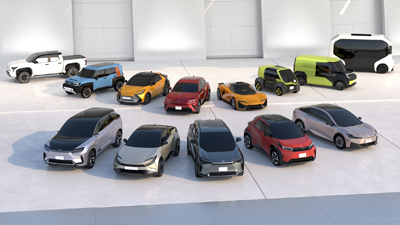According to inside sources, Toyota is now reconsidering previous plans for electric vehicles.
The story from Reuters, as it can so often be with Toyota, is cryptic and limited in details. Toyota seemed dedicated in recent months to hybrid engine technology; executives even actively worked to defend their company’s position. But now Toyota’s slow EV introduction may change, with a new plan revealed by company insiders.
The plan outlined by four Toyota employees is a significant change in strategy. The company could reduce the number of upcoming electric vehicle models---currently 30 worldwide---while focusing on high production volume and low-cost manufacturing.
And while this may seem like a dramatic reversal of its current $38 billion plan to introduce EV models globally over the coming years slowly, this may fit Toyota’s character more than one would believe.
No other details of the plan have been revealed, and Toyota was not immediately available for comment to clarify its upcoming plans.
Toyota got its foothold in the U.S. market, as many other Japanese manufacturers did, during the oil crisis in 1973. Consumers were looking for more efficient and affordable options than the Ford Galaxies and Cadillac El Dorados of the '60s. Hence, Toyota prided itself on its low-cost manufacturing, affordability to consumers and efficiency of its offerings, a goal that may be replicated by the brand today.
Akio Toyoda, CEO of Toyota, clarified his views on electric vehicles. To him, the “Hail Mary” of electric vehicle technology is foolhardy due to challenges of cost of manufacturing, infrastructure growing pains and more. However, other Toyota employees see the opportunity in the EV market.
Reuters’ reporting highlights why Toyota has been so hesitant to enter the electric vehicles market. First of all, company executives believed demand for EVs would not become mainstream for many years, giving Toyota plenty of time to continue to sell high-efficiency gas vehicles. Second, company engineers realized Tesla’s gains in electric vehicle manufacturing, another factor they believed would take years to develop.
The message for Toyota is now clear. Focus on the factors that once made it great, and there is an opening to succeed. Come to the market with affordable, efficient and fully electric vehicles, and it has the opportunity and the privilege to lead in automotive manufacturing again.










Abby Andrews